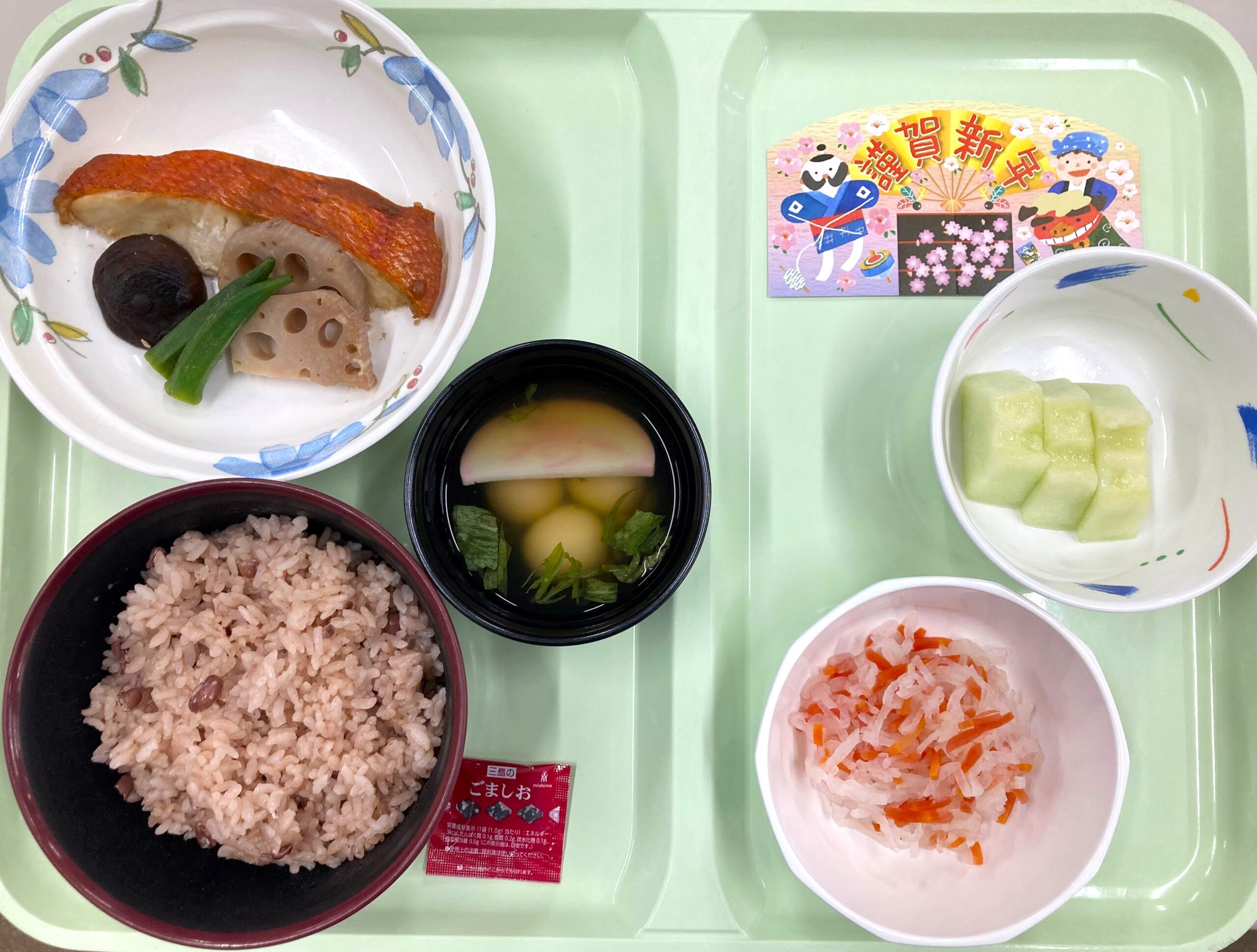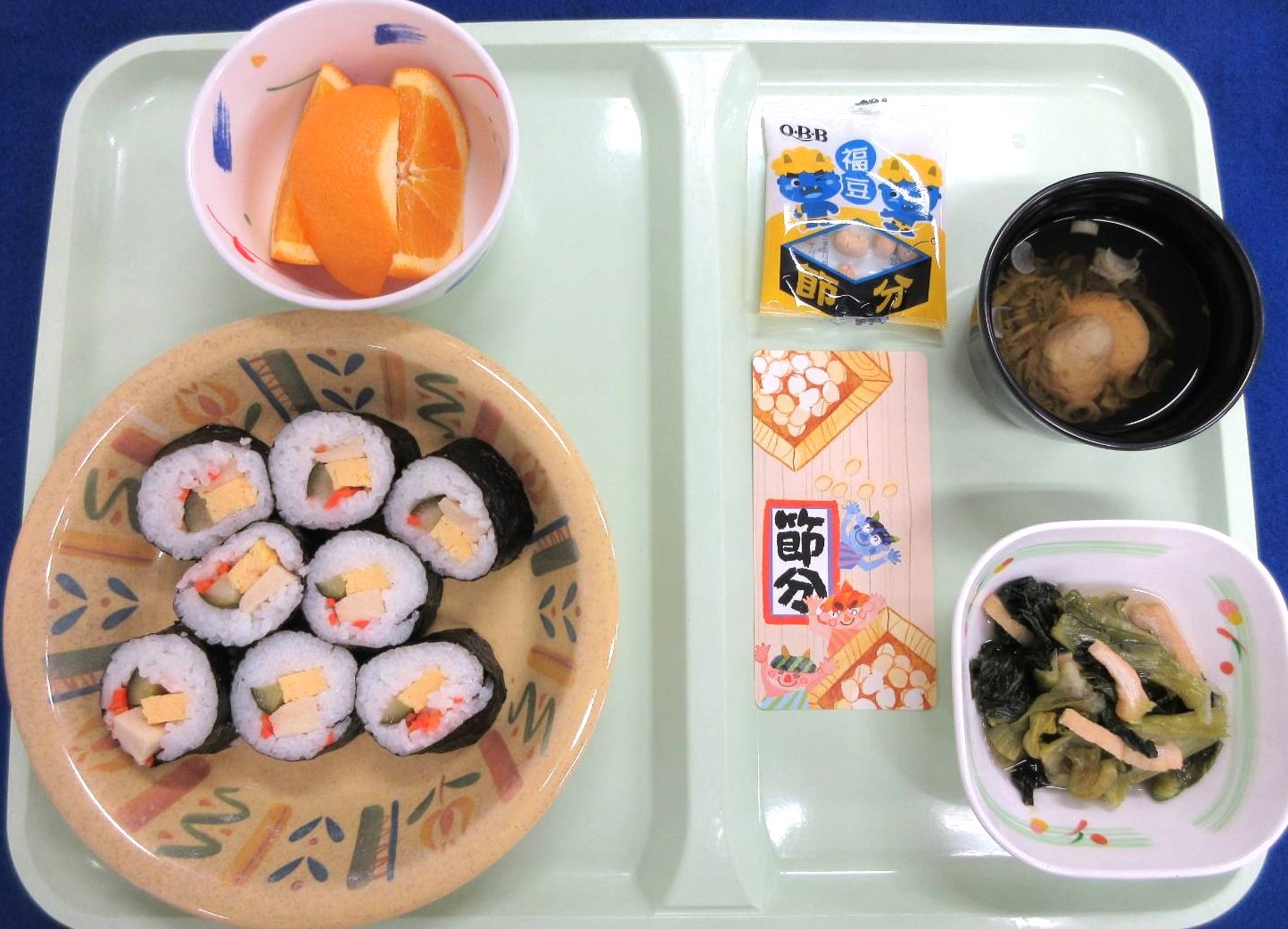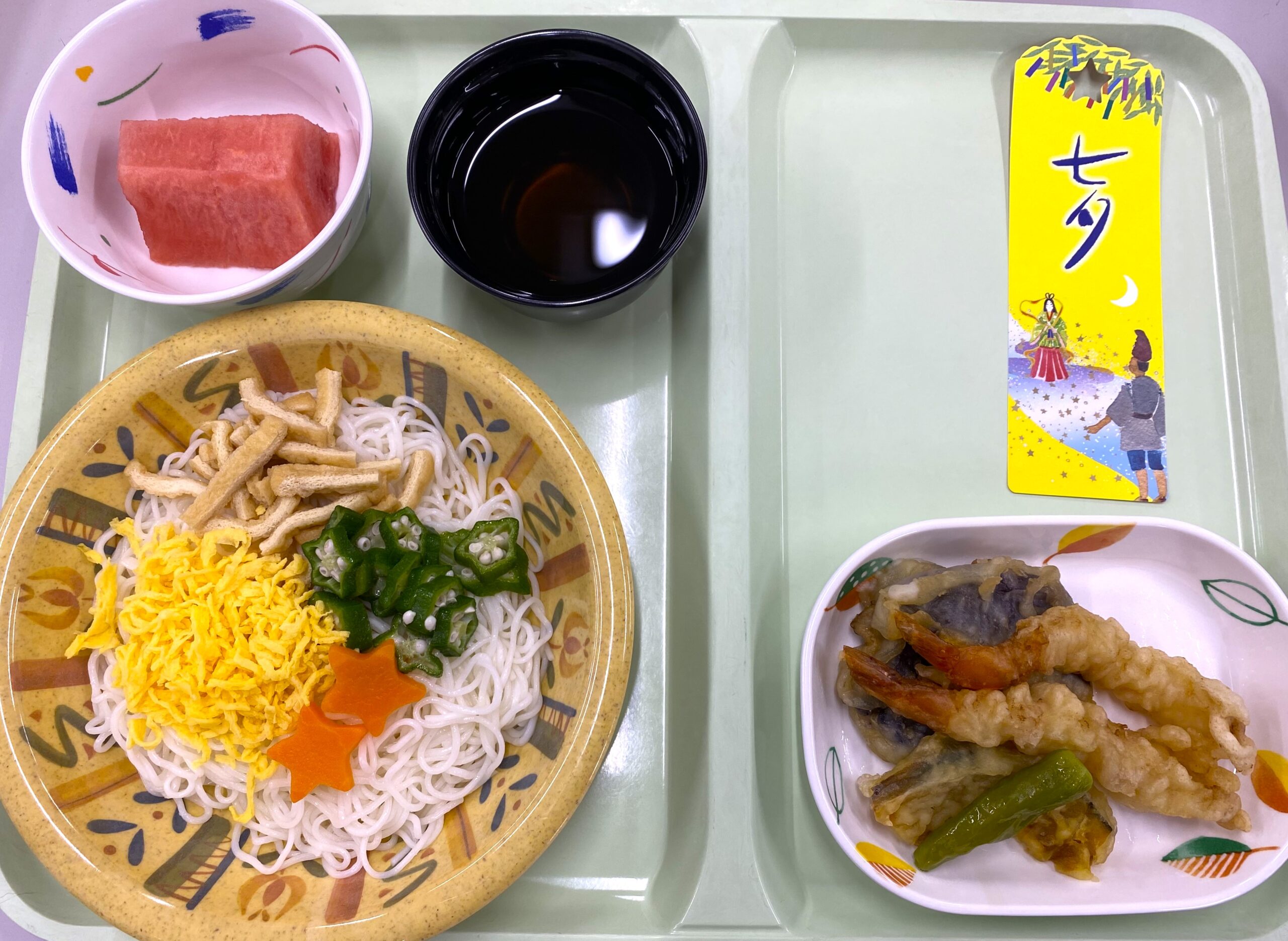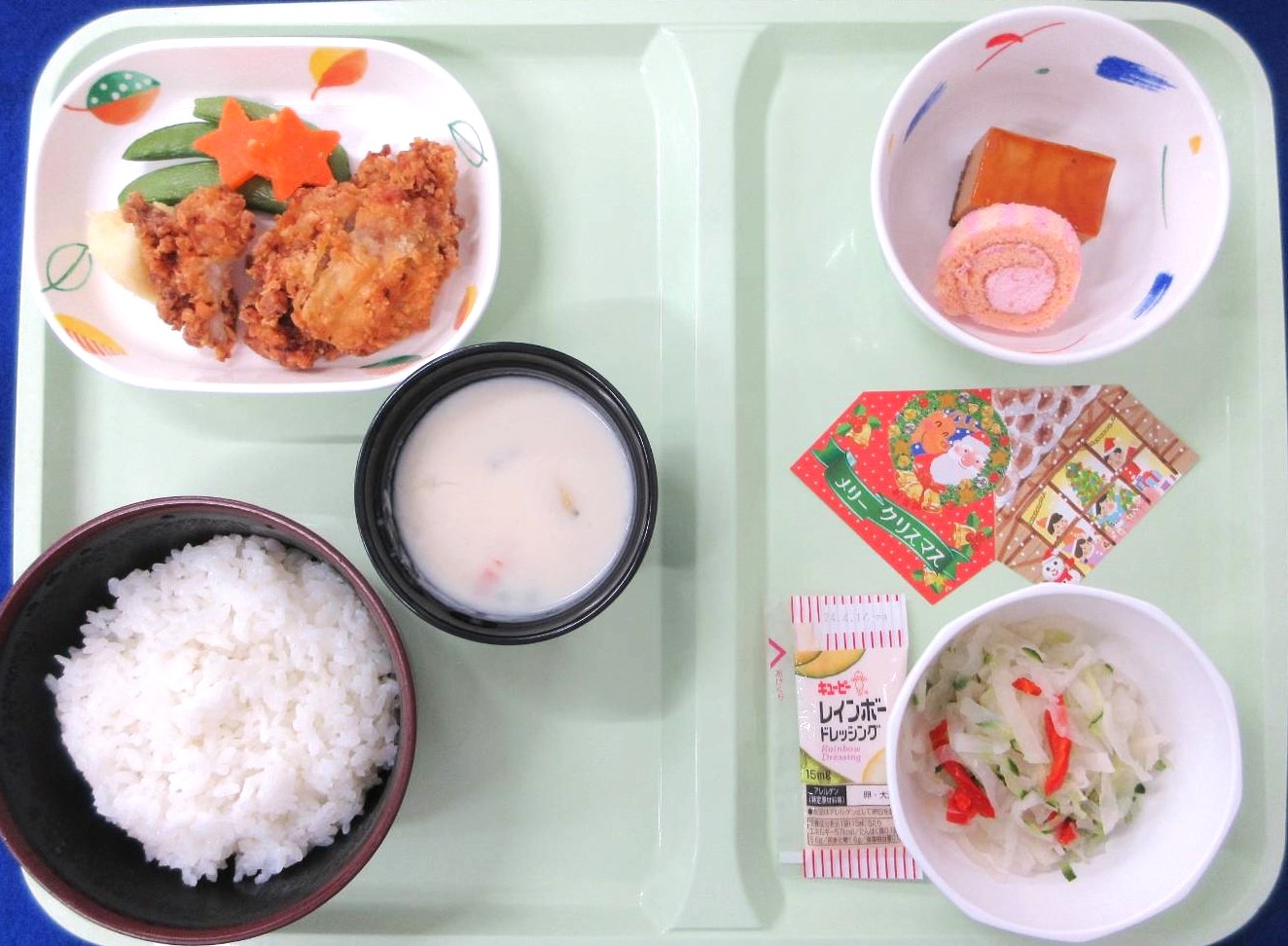Overview Nutrition Management Department
For inpatients
At the pre-hospital preparation center, if special consideration is required regarding meals and nutrition during hospitalization, a registered Registered Dietitian will directly confirm this, and from the first meal on the day of admission, we will provide meals that suit the patient. If there is a risk of malnutrition, the registered Registered Dietitian in charge of the ward will listen to you in detail and make the necessary dietary adjustments.
In the case of emergency hospitalization, the registered Registered Dietitian in charge of the emergency ward exchanges information with doctor and nurses, and considers ways to secure the necessary amount of nutrition.
When you are discharged from the hospital, we will provide you with nutritional guidance as needed, focusing on your meals during your hospital stay.
For outpatients
If you require dietary therapy at home due to lifestyle-related diseases, cancer, or other illnesses, you can receive nutritional guidance under the direction of your doctor.
To everyone in the area
Anyone can participate in classes such as lifestyle-related diseases and digestive diseases.
Activities of the Nutrition Management Department
<Nutrition consultation>

<Meal adjustment by registered Registered Dietitian >
For patients whose oral intake is not progressing due to poor appetite, Registered Dietitian consults with them in the ward and proactively adjusts their diet. We provide meals while considering the form of the meal, including swallowing. We are also considering the appropriate dosage and administration method for patients receiving tube feeding.
Staff introduction
Nutrition Management Department staff
| job title | Full name |
|---|---|
| Director (doctor) | Toshio Iwakura |
| Deputy Director (doctor) | Hiroaki Nishioka |
| Deputy Director (doctor) | Toru Nagano |
| Deputy Director (Registered Dietitian) | Masako Iwamoto |
20 Registered Dietitian (including 1 Director, 1 chief examiner, 2 chiefs, 3 residents, and 3 part-timers)
Number of Certified Qualified Persons in Specialized Fields (Registered Dietitian Only)
| NST Professional Therapist | 7 (including concurrent posts) |
|---|---|
| diabetes educator | 5 (including concurrent positions) |
| Registered Dietitian specializing in pathophysiological nutrition | Five people |
| Pediatric Allergy Educator | 1 person (including concurrent posts) |
| Registered Registered Dietitian specializing in cancer pathology nutrition | 1 person |
| Clinical Nutrition Metabolism Therapist | 2 people |
| heart failure educator | 2 people |
| Nephrology educator | 1 person |
| Hyogo Prefecture Hepatitis Medical Coordinator | 1 person |
clinical service
1. Nutrition Care Management (NCM)
- We conduct nutritional assessments of all inpatients and provide advice on nutritional supplementation methods, etc., in order to correct and improve the nutritional status of those who require nutritional intervention. All wards, including the emergency room and ICU, have registered Registered Dietitian in charge of the wards.
- During hospitalization, patients may lose their appetite due to the effects of illness or side effects of treatment. In addition, there are times when you cannot eat orally and you have to inject nutritional supplements through your nose or stomach, or take nutrition through a drip. I am
- We hold nutrition conferences at each ward as needed, but if it is difficult for the ward to respond, we ask the NST(Nutrition Support Team) to examine nutrition and strive to implement appropriate nutritional management.
- Participating in various conferences and rounds as team medical care support, providing advice and information on nutrition.
| (1) NST conferences and rounds | 1 time/week |
|---|---|
| ②NST Satellite Team Conference | by each ward |
| ③Diabetes conferences and rounds | 1 time/week |
| ④Kidney disease conferences and rounds | 1 time/week |
| ⑤ Cardiac Rehabilitation Conference | 1 time/week |
| ⑥ Heart failure conference | 2 times/month |
| (7) Swallowing rounds | 1 time/week |
| ⑧ Swallowing working | Irregular |
| ⑨VF (VIDEO FLUOROGRAPHY) Conference | 1 time/week |
| ⑩Pressure ulcer conferences and rounds | 1 time/week |
| ⑪ Palliative Care Conference | 1 time/week |
| ⑫ Palliative care rounds | 4 times/week |
| ⑬E-ICU rounds | every day |
| ⑭G-ICU rounds | every day |
| Gastroenterology Conference/Round | 1 time/week |
| Hematology Transplantation Conference | 1 time/week |
| ⑰ Allergy Team Conference | Irregular |
| ⑱ CIFT rounds | 1 time/week |
| ⑲Comprehensive General Medicine conference | 1 time/week |
2.Individual nutrition consultation
We provide nutrition and diet counseling for patients who need nutrition and diet therapy regarding diet and proper nutrition according to various diseases, including diabetes, heart disease, and kidney disease. Since it is an appointment system, please inform your doctor of your desired date and time. If there are vacancies on the day of your outpatient appointment, it is possible to receive a nutritional and meal consultation on the day of your outpatient visit.
Time: Monday to Friday 9:00 to 16:30 (until 15:30 on Tuesday), about 30 minutes each time.
Location: 2nd floor nutrition consultation room (located diagonally in front of Tully's, look for the apple mark)
If you are a hospitalized patient and would like to talk about nutrition and diet therapy after discharge, we may talk in the ward at a date and time that is convenient for you and your family.
3.Group nutrition dietary guidance
We provide group nutrition and dietary guidance for hospitalized patients. We talk about the basics of diet and nutritional therapy for various diseases. Reservations are required. *In each case, you will receive an individual nutritional and dietary consultation before you are discharged from the hospital.
Dietary Guidance for Group Nutrition for Diabetes
Time: Every Tuesday from 14:00 for about 1 hour
cardiac rehabilitation
Time: Every Thursday from 14:00 for about 1 hour
others
- Guidance of clinical intern trainees
- Implementation of the nutrition management committee, correspondence and coordination of various committees
- Implementation of health education (general public, other departments, other facilities, medical intern, Nursing Department, sales staff, etc.)
- Coordinating facility tours
Meals during hospitalization
Meals during hospitalization
- Providing safe meals
- Provision of Appropriate Meals
- Providing meals that enhance QOL
- Event meal
- Personal order correspondence
- Thorough hygiene management
- Provision of meals according to nutritional components suitable for diseases
- Introduction of selection menus, serving on reheating carts
- Providing seasonal meals for monthly events
- Dealing with treatment-related anorexia, difficulty swallowing, food allergies, etc.
About meal types
Meals during hospitalization are divided into general diets and special therapeutic diets, and are a 28-day cycle menu. Basically, your doctor will decide the contents of your meal according to your disease, but if you do not have the form of meals or if the amount of food intake is low, the registered Registered Dietitian will decide the contents of the meal. I will adjust. Please refer to the weekly menu of adult meals posted in each ward.
general diet
There are adult diets and senior diets, and there are liquid diets and soft vegetarian diets. There are no special nutritional restrictions, but we are able to take in nutrients in a well-balanced manner. For those who can't eat much, there is a half meal for each.
Other than the general diet, it is a special therapeutic diet. Adjust the diet based on the doctor 's instructions, which is directly involved in the treatment of the disease.
| 《Special meal non-additional meal》 | Pediatric diet, maternity/delivery diet, liquid diet after surgery such as ulcer diet, etc. |
|---|---|
| 《Additional meals for special meals》 | Of the special therapeutic meals, this is a therapeutic meal that can be calculated as an addition to the inpatient meal allowance. Diets for kidney disease, liver disease, diabetes, gastric ulcer, pancreatic disease, and dyslipidemia are mainly targeted. |
| medical fee | general diet | special diet |
| non-additive |
|
|
|---|---|---|
| Special meal addition |
|
About serving meals
At our hospital, we have adopted a new cook chill system that reheats and serves chilled food in a reheating cart before serving. Half of the meal tray is for hot serving (mainly staple food, soup, main dish, etc.), and the other half is for cold serving (marinated dish, salad, dessert, drink, bread, etc.). It is served to the patient at the appropriate temperature.
About special correspondence
We provide special support for those who have difficulty eating regular meals.
bite size
A side dish such as fish or meat is cut into easy-to-eat bite-sized pieces, and can be eaten by sticking it with a fork.
Bite large thickness
It is a bite-sized meal, and it is a meal with thickened juices and liquid parts.
Skewered food
This is a meal in which all the food is skewered to make it easier to eat when you need to rest after an examination, or when you are in pain and can only eat while lying down.
supplementary food
Dietary supplements, jelly, etc., added to meals to provide nutritional supplements for those who cannot eat enough, or who are eating but lacking in nutrients.
forbidden food
In addition to responding to prohibited foods for food allergies, we also provide meals that exclude ingredients and dishes that are difficult to eat if you have a decreased appetite.
swallowing food
This meal is for people who have difficulty swallowing food or drinks due to post-cerebral infarction, neurological disease, surgery, etc. There are 5 stages of meals, such as jelly food, paste food, and extremely chopped thick food.
Hydrangea food
Meals for those who find it difficult to eat due to treatments such as chemotherapy, radiation therapy, and post-surgery.
| 《Hydrangea Food A》 | It is a meal prepared only with dashi stock. It is suitable for those who feel all flavors strongly. |
|---|---|
| 《Hydrangea food B》 | Curry and rice, okonomiyaki, hamburgers, and other dishes with strong flavors are available. |
| 《Hydrangea food C》 | It is a meal in which all dishes are served cold. It is suitable for those who are concerned about the smell of food and those who cannot eat hot food due to stomatitis. |
About selective diet
| Target food species | Adult food, maternity food, childbirth food |
|---|---|
| Implementation day | Wednesdays, Thursdays, and Fridays (excluding holidays and event food days) |
| Deadline time/place | If you wish, fill in the application form and submit it to the collection box in the ward by 14:00 on Tuesday. |
Please note that changes cannot be made after selection. In addition, we may not be able to meet your request due to changes in the date and time of hospitalization or the type of food you eat after hospitalization. note that.
About event meals
Every month, we provide meals that match seasonal events.
(example)
About Classes by Pathology
Some classes have been canceled to prevent the spread of the new coronavirus infection.
The Diabetes Class started disseminating information on its website. The Cardiology Department has started disseminating information on its website. The Kidney Disease Class has started disseminating information on its website.Pathological Classroom
Nutritional diet plays an important role in the treatment and management of disease. The following classes are held to ensure proper treatment. There are many people who participate for treatment, prevention of onset, or for study. No reservations or participation fees are required. For details, please refer to the page of each classroom.
| subject | content | Attendant | |
| Diabetes class | Inpatient/outpatient and family | About diabetes diet, life, medicine, self-monitoring of blood glucose |
doctor, registered Registered Dietitian, nurses, pharmacists, clinical laboratory technologists, physical therapists |
| cardiology classroom | About heart disease diet, medicine, exercise |
doctor, Registered Dietitian, Pharmacist, Physical Therapist | |
| Kidney disease class | About kidney disease food, medicine |
doctor, Registered Dietitian, Pharmacist, Physical Therapist | |
| Digestive disease class | About digestive diseases (liver, pancreas, etc.), food, medicine |
doctor, Registered Dietitian, pharmacist | |
| Easy Breathing Class | Respiratory rehabilitation, respiratory disease and nutrition | doctor, nurses, physical therapists, occupational therapists, registered Registered Dietitian, pharmacists |
clinical research
| Research subject name | Explanatory text (PDF) |
| The reality of early nutrition intervention in ICU | |
|---|---|
| Examination of the effectiveness of prehospital nutrition screening for inpatients |
Recruitment information
Click here for regular staff recruitment information Click here for resident recruitment information Click here for part-time jobs Recruitment of fixed-term employment staff from hereAbout the resident system
About the resident system
At our hospital, we have adopted a resident system for registered Registered Dietitian.
The purpose is to develop Registered Dietitian who can practice clinical nutrition work corresponding to advanced acute medical care and team medical care through lectures and clinical practical training based on practical experience. Of course, you can also acquire the ability to deal with chronic diseases.
We are looking for people who want to work at a hospital in the future, who want to acquire advanced knowledge and practical skills, and the ability to communicate with patients and medical staff, and who want to play an active role immediately after that, or who are currently working in a hospital or medical field. For those who want to acquire a wider range of specialized knowledge and practical skills.
education system
The training in the resident system is carried out for two years. The general program is listed below, but the content may change slightly depending on the individual's work experience. In addition, during the training period for residents, we are asking them to assist with school lunches as staff assistants.
| 1st year (general course) | Acquisition of records in SOAP format, procedures for nutritional guidance, methods for formulating nutritional management plans, etc. | |
|---|---|---|
| Ward nutrition management | Students rotate around each ward (including ICU and emergency ward) every two to three weeks to learn how to deal with various diseases and conditions. At that time, the registered Registered Dietitian in charge of each ward provides detailed guidance on how to intervene in nutrition. Participate in conferences and rounds of clinical departments in rotating wards. | |
| nutritional guidance |
nutritional guidance Individual: Responsible for 1 to 2 slots per week (1 slot is 4 hours in the morning or afternoon). Group: Responsible for diabetes and cardiac rehabilitation in rotation. |
|
| Once a week, we have a preparatory lesson about nutrition guidance and patient intervention in the ward with a registered Registered Dietitian in charge of resident education, and we also have time to reflect on cases that were difficult to deal with. In the last week of each month, we ask them to present their achievements and reflections for the current month and their goals for the following month. | ||
| Second year (specialized course) |
Responsible for 1-2 wards, acquire the ability to practice more specialized nutrition management and team medical care in the acute phase, critical care department, and other pathologies. The ward you will be in charge of will meet your wishes to some extent according to your future course and qualifications you want to acquire. I will continue to provide nutritional guidance. I will continue to spend time with the resident education staff once a week, but I will continue to gain experience by educating junior residents. |
|
Career path of seniors
Hospital employment, graduate school, university teacher, etc.








